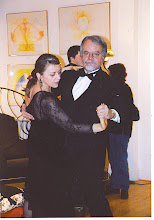
The Birdhouse Network: A Decade of Dedication
Citizen scientists keep tabs on the lives of nesting birds
Ithaca, NY—For 10 years, a network of dedicated birders has made it their mission to help birds by providing nest boxes where birds can raise their families—and by recording information for scientists. Together, they’ve kept a decade of meticulous records about when the birds build their nests, how many eggs they lay, and when the gawky fledglings take their first flights. Combined, they have sent nearly 70,000 nest records to The Birdhouse Network, a citizen-science project of the Cornell Lab of Ornithology. These efforts have helped expand scientific knowledge about bluebirds, Tree Swallows, House Wrens, and other cavity-nesting birds for whom the motto may be rephrased, “Hole Sweet Home.”
Citizen scientists keep tabs on the lives of nesting birds
Ithaca, NY—For 10 years, a network of dedicated birders has made it their mission to help birds by providing nest boxes where birds can raise their families—and by recording information for scientists. Together, they’ve kept a decade of meticulous records about when the birds build their nests, how many eggs they lay, and when the gawky fledglings take their first flights. Combined, they have sent nearly 70,000 nest records to The Birdhouse Network, a citizen-science project of the Cornell Lab of Ornithology. These efforts have helped expand scientific knowledge about bluebirds, Tree Swallows, House Wrens, and other cavity-nesting birds for whom the motto may be rephrased, “Hole Sweet Home.”
Getting Oriented: Using records from participants, scientists have examined factors that affect the success of nesting birds across time and space. They have found, for example, that in northern latitudes, nest boxes facing east or northeast produce more fledglings. The hypothesis is that cavity entrances facing toward the sunrise remain warmer on cold spring mornings, increasing survival rates. In contrast, the orientation of the nest box has no effect in southern latitudes.
Some Don’t Like it Hot: A significantly higher number of eggs fail to hatch in the South than in the North. Researchers are investigating whether prolonged warm temperatures cause some of the eggs to start developing before the female begins incubating, leading to abnormal development. Birds in warmer climates tend to produce more broods—perhaps to balance the loss. Scientists will be keeping close tabs on rates of hatching in the face of global climate change.
The Birdhouse Network also invites participants to help in a special study called Personality Profiles. Participants follow an experimental protocol and observe how birds react to harmless novel objects placed near nest boxes. Scientists use the information to learn more about birds, such as why some species fare better in cities or around people. They invite anyone interested in animal behavior to help by joining the study.
People of all ages and skill levels can be part of The Birdhouse Network. “Without the data sent in by participants, we would not be able to track large-scale trends in the reproductive cycles of these birds,” says project leader Tina Phillips. “Whether they monitor one box or 100, our participants are so dedicated to the birds, and the data they provide us year after year are incredibly powerful.”
To sign up or find out more about The Birdhouse Network, visit www.birds.cornell.edu/birdhouse, or call (800) 843-2473. The project fee is $15 ($12 for Lab members). Join in this spring to “keep your eye on the birdy” and help scientists develop a clearer picture of the intricate and fascinating


No comments:
Post a Comment